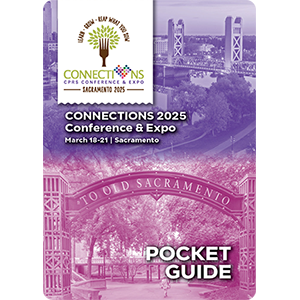Parks as Nature Therapy: The Wellness Opportunities in Parks and Open Spaces
Thursday, March 20, 2025
4:00 PM - 5:00 PM PST
Room: Ballroom B 10
Earn 0.1 CEUs
Session Description: How great would it be if the first step to healthcare treatment was a prescription to spend time in nature? That’s what Peter Mayfield, of Gateway Mountain Center, and Greg Melton, of Melton Design Group/Park Collab, are working to make reality. Incorporating wellness assessment and therapeutic design elements into parks offers natural mental health therapies in our own local parks. Mayfield and Melton’s approach revolves around working with health professionals, community leaders, parks and recreation departments and other experts to create effective, research-backed, therapies for communities to make health and wellness a priority in their parks and outdoor spaces.
Physical and mental health concerns have long been on the top of mind for public health professionals. Educators and parents have seen child development gaps since kids spend less time outdoors - coined “Nature Deficit Disorder” by Richard Louv. This year Surgeon General Dr. Vivek H. Murthy labeled social connection as another major public health issue. Healing time in nature can be a powerful tool in addressing physical and mental health issues, social connection and children’s development. It is time to rethink how parks are built, programmed, maintained, used and envisioned. Let’s all work together to change our parks’ impact and role in healing our communities.
This session will break down all the elements, therapies and challenges to creating a nature-based healing environment in parks. Participants will receive a “mini” nature therapy experience and walk away with new tools to create such opportunities in their own parks and communities. This experience is rooted in nature and supported by science.
Physical and mental health concerns have long been on the top of mind for public health professionals. Educators and parents have seen child development gaps since kids spend less time outdoors - coined “Nature Deficit Disorder” by Richard Louv. This year Surgeon General Dr. Vivek H. Murthy labeled social connection as another major public health issue. Healing time in nature can be a powerful tool in addressing physical and mental health issues, social connection and children’s development. It is time to rethink how parks are built, programmed, maintained, used and envisioned. Let’s all work together to change our parks’ impact and role in healing our communities.
This session will break down all the elements, therapies and challenges to creating a nature-based healing environment in parks. Participants will receive a “mini” nature therapy experience and walk away with new tools to create such opportunities in their own parks and communities. This experience is rooted in nature and supported by science.
Learning Objectives:
- Upon completion, participants will understand how to assess and enhance park and recreation spaces to provide health and wellness experiences. This will include a comprehensive wellness-focused assessment of existing wellness amenities, identifying opportunities for improvement, and learning more about the physical and psychological benefits of time spent in nature.
- Upon completion, participants will have the tools to develop site-specific wellness designs and concepts such as interpretive panels, QR codes, and staff training to promote health and wellness effectively. This will include cost estimates and implementation strategies to ensure everything aligns with the site wellness assessment findings and budget constraints.
- Upon completion, participants will understand the lasting neurological benefits of balance-focused activities and thoughtfully designed parks and how this can alleviate a range of mental health symptoms. Participants will explore how engaging all five senses while in nature can help individuals affected by adverse childhood experiences and complex trauma while benefiting the community as a whole.

Gregory Melton, RLA 4217 (he/him/his)
Principal Landscape Architect / President / CEO
Melton Design Group, Inc.
Chico, California.jpg)
Peter Mayfield (he/him/his)
Founder/Director of Strategic Expansion
Gateway Mountain Center
Truckee, California

